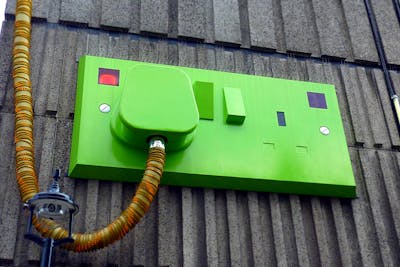What Is a Utility Bill ? Example of Utility Bill and Inclusions


When managing household or business expenses, one term that frequently comes up is the “utility bill.” But what exactly is a utility bill, and why is it important? Understanding this common aspect of financial responsibility is crucial for budgeting and maintaining your everyday living or business operations. In this post, we’ll delve into what is a utility bill, what includes utility bill charges, and provide an example of utility bill types you might encounter.
What Is a Utility Bill?
A utility bill is an invoice that you receive from a service provider, charging you for the consumption of essential services such as electricity, water, gas, and sometimes waste management. These services are necessary for daily living and working, making the timely payment of utility bills a priority for most households and businesses.
Utilities are the backbone of modern life. They keep your home warm in the winter, provide clean water for drinking and bathing, power your appliances, and more. Without utilities, everyday activities would become challenging, if not impossible. That’s why understanding what includes utilities in your bill is essential for managing these costs effectively.
Examples of Utility Bills
There are various examples of utilities bills, depending on the services you use. Some common examples include:
- Electricity Bill: This is perhaps the most common example of utility bill you’ll encounter. It covers the cost of electricity used to power lights, appliances, heating, and cooling systems. The charges usually vary based on the amount of electricity consumed, and the bill may include a breakdown of charges for energy use during peak and off-peak hours.
- Water Bill: Your water bill charges you for the amount of water used in your home or business. This can include water for drinking, bathing, cooking, and irrigation. Some water bills also include charges for wastewater or sewer services, which are essential for disposing of used water safely.
- Gas Bill: If your home uses natural gas for heating, cooking, or water heating, you’ll receive a gas bill. This is another key example of utility bill, and like electricity, the charges are based on your usage.
- Trash and Recycling Bill: In some areas, waste management services, including trash pickup and recycling, are billed separately. This utility bill ensures that your household waste is collected and processed properly.
These examples of utilities bills are the most common, but there may be others depending on where you live and the services you use. For instance, some people might also receive bills for internet and phone services, which, while not traditional utilities, are considered essential in today’s digital age.
What Includes Utility Bill Charges?
Understanding what includes utility bill charges is essential for managing your expenses. Each type of utility bill will have different components that contribute to the total amount due. Let’s take a closer look at what includes utilities charges in these bills:
• Basic Service Charge
This is a fixed charge that covers the cost of maintaining and delivering the utility service to your home or business. Whether you use a little or a lot, this charge remains constant.
• Usage Charge
This charge is based on the amount of the utility you consume, such as kilowatt-hours of electricity, cubic meters of water, or therms of natural gas. The more you use, the higher this part of the bill will be.
• Taxes and Fees
Utility bills often include various taxes and government-imposed fees. These can be a percentage of your usage charges or flat fees added to your total bill.
• Additional Services
- Some utility bills may include charges for additional services like energy-saving programs, line protection plans, or advanced meter services. These are typically optional but will appear on your bill if you opt into them.
By knowing what includes utility bill charges, you can better understand why your bill is the amount it is each month and identify ways to potentially reduce costs.
Why Understanding Utility Bills Matters
Being familiar with examples of utilities bills and what includes utilities charges can help you manage your finances more effectively. Here are a few reasons why this knowledge is important:
- Budgeting: Understanding your utility bills allows you to budget more accurately. You’ll know what to expect each month and can plan your expenses accordingly.
- Cost-Saving Opportunities: By analyzing your bills, you may find areas where you can reduce usage and lower costs. For example, using energy-efficient appliances or reducing water waste can lead to significant savings.
- Avoiding Late Fees: Knowing when your utility bills are due and what includes utility bill charges can help you avoid late fees and penalties, which can add up over time.
- Environmental Impact: Monitoring your utility usage not only saves money but also helps reduce your environmental footprint. Lowering your consumption of electricity, water, and gas can contribute to a more sustainable lifestyle.
Example of Utility Bill Breakdown
Let’s look at a simplified example of utility bill to illustrate how these charges might appear:
- Electricity Bill:
- Basic Service Charge: $15.00
- Usage Charge (500 kWh at $0.12/kWh): $60.00
- Taxes and Fees: $5.00
- Total: $80.00
- Water Bill:
- Basic Service Charge: $10.00
- Usage Charge (3,000 gallons at $0.005/gallon): $15.00
- Wastewater Service: $10.00
- Taxes and Fees: $2.00
- Total: $37.00
These simplified examples of utilities bills show how different charges are combined to form the total amount due each month. By understanding each component, you can better manage and possibly reduce your utility expenses.
Conclusion
Understanding what is a utility bill, and being familiar with examples of utilities bills, is essential for managing your household or business finances effectively. By knowing what includes utility bill charges, you can budget more accurately, identify cost-saving opportunities, and ensure timely payments. Whether it’s electricity, water, or gas, staying informed about your utilities will help you maintain a smooth, cost-effective lifestyle.
- You might be intrested to read this:
- The Ultimate Office Supplies List



Post Comment